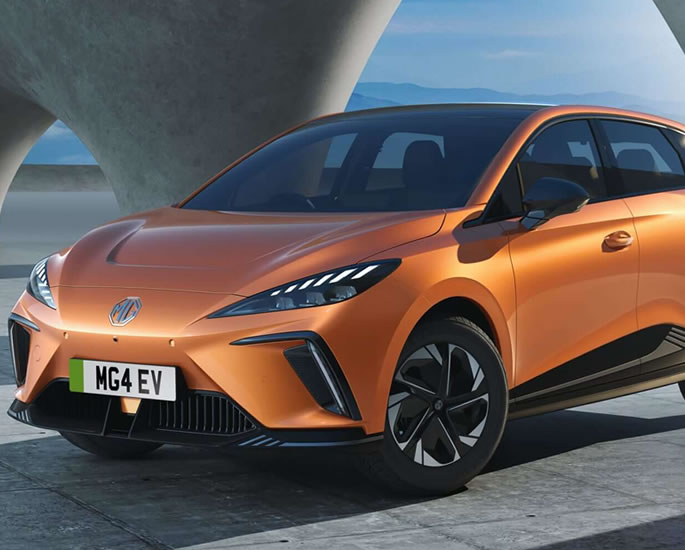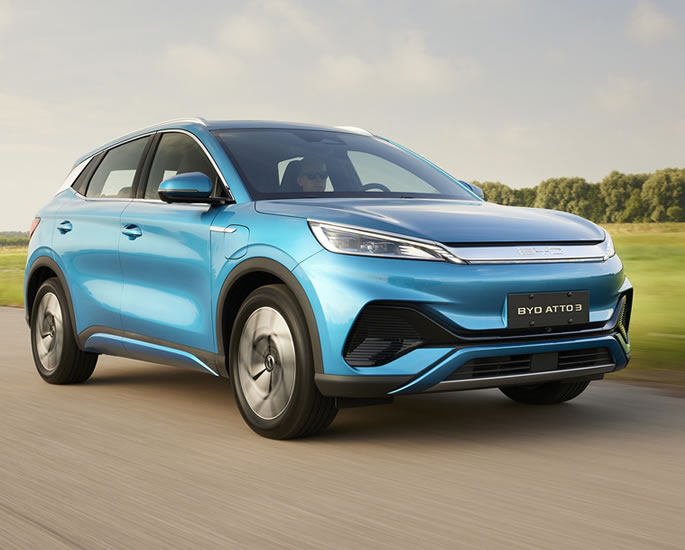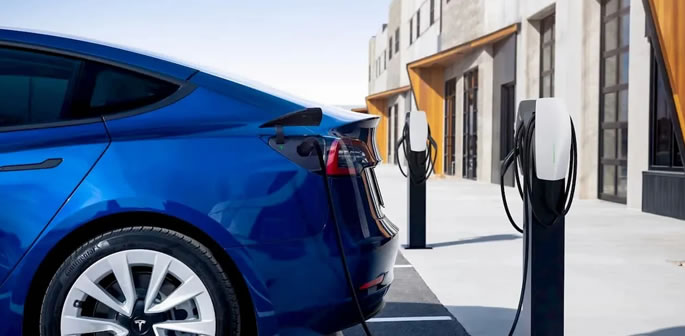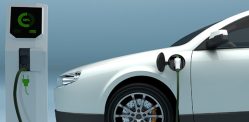"pricing is set to become a key battleground"
Experts have predicted that new electric cars will become more affordable in 2024.
This is because a ‘price war’ is set to develop.
Cheaper Chinese brands and the introduction of the Zero Emission Vehicle (ZEV) Mandate will force other makers to reduce their prices to remain competitive and meet new binding targets for EV sales set out by the Government.
Auto Trader said: “Drivers considering taking the first step on their electrified driving journey have never been in a better position to benefit from falling EV prices than in 2024.”
The emergence of Chinese manufacturers is going to cause a massive shift in the UK’s new car sector.
Chinese brands are expected to capture a sixth of the UK’s EV market by 2030 as its manufacturers look overseas after conquering their domestic market.
China is already the world’s biggest exporter of cars, overtaking Japan in 2023, and some manufacturers are already impacting the UK car market.
MG accounted for over four per cent of vehicle registrations in the UK in 2023.
In just 10 years, Shanghai-operated MG Motor has increased its market share of new cars sold per year by 19,094%.
It now sells more new vehicles than Skoda, Peugeot, Land Rover, Volvo, Renault and Tesla.

Other Chinese brands like GRW (Great Wall Motor) and BYD (Build Your Dreams) are still establishing themselves as they break into the UK market.
BYD recently overtook Tesla as the world’s biggest manufacturer of electric cars in the final three months of 2023, selling 526,000 globally.
Auto Trader experienced a threefold increase in searches for BYD cars in the days following the news, constituting over six per cent of all new electric vehicle advert views.
Chinese automotive brands have the potential to further reduce their prices.
For example, the BYD Dolphin EV, priced at £13,000 in China, starts at £25,000 in the UK.
Similarly, the GRW’s ORA 03 (formerly the Funky Cat) supermini has a price disparity of £19,000, with a £12,000 starting price in China and £31,000 in the UK.
It’s worth noting that these price differentials are influenced by substantial subsidies from the Chinese government and significant import taxes.
Experts at Auto Trader said: “This gap gives Chinese entrants the pricing power to take on established Western brands in the UK, where unlike other European markets there’s no dominant player, and competition for market share is more fierce.
“With upfront cost the primary EV consideration barrier for 56 per cent of buyers, pricing is set to become a key battleground in the EV transition.
“Here, BYD has a particular price advantage as it is also the world’s leading producer of rechargeable batteries, the most expensive component of an electric vehicle.”
Established brands are already negotiating deals to market their new electric vehicles (EVs) to the British market.
Currently, the average discount on EVs in UK showrooms is 10.6%, surpassing the typical average discount of 7.7% on petrol, diesel, or hybrid cars.
Additionally, Auto Trader reports that four out of five new EVs come with reduced or zero finance offers as manufacturers strive to entice buyers and safeguard their market share.
The entry of Chinese brands won’t solely drive the reduction in the price of new electric vehicles (EVs); newly implemented binding thresholds for electric car sales this year will also play a significant role.

The 2024 Zero Emission Vehicle (ZEV) mandate stipulates that manufacturers must ensure a minimum of 22% of their sales are electric, or face fines of £15,000 for each sale falling short of the target.
This mandate is expected to intensify the pressure on prices as sellers seek to entice retail buyers.
Looking ahead, the ZEV regime aims for 80% of cars sold in the UK to be electric by 2030, yet the current average share of electric sales across brands is only 16%.
Some manufacturers have an even lower EV share, as low as three per cent of all car sales in Britain.
Brands falling below the ZEV targets can purchase ‘credits’ from manufacturers exceeding the threshold, such as Tesla and Polestar, which exclusively sell EVs.
However, this option comes with a substantial cost.
Geopolitical factors could increase oil prices in 2024.
This, in turn, may lead to increased costs for petrol and diesel, providing another incentive for drivers to consider transitioning to an EV before the 2035 ban on sales of new combustion engine cars.
Ian Plummer, commercial director at Auto Trader, said:
“The introduction of the ZEV mandate means that manufacturers are still under pressure to sell more electric cars and to do that, they’ll need to compete on price.
“The rise of China in electric cars will only add to that pricing pressure as they have the firepower to grab UK market share.
“To really ignite mass adoption of electric cars, the government should consider a fairer approach by equalising VAT on public and private charging as well as reducing VAT on second-hand electric cars.”






























































